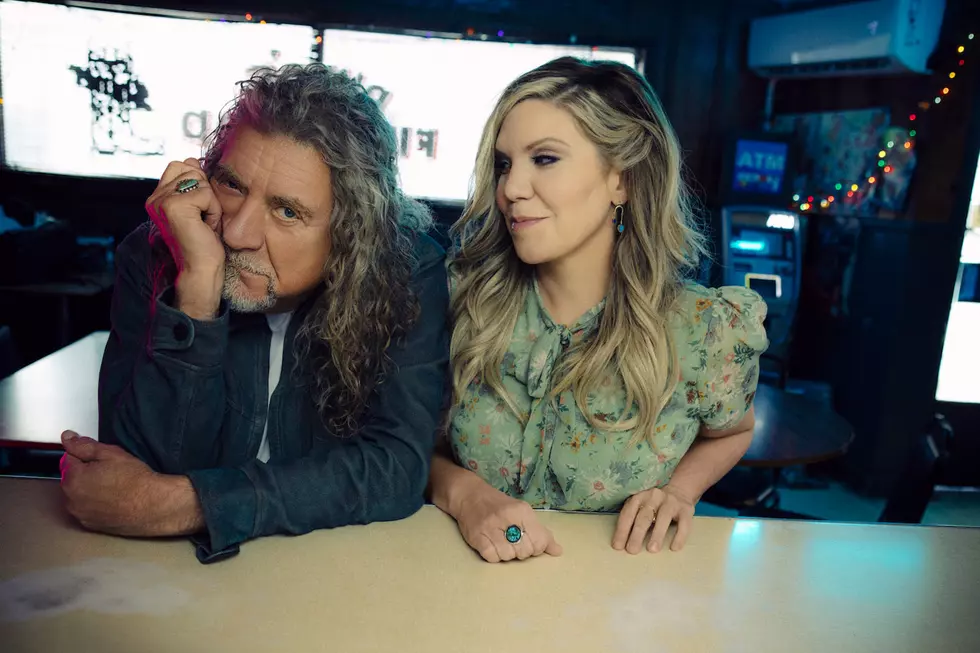
Robert Plant Told Alison Krauss of Song That ‘Embarrassed’ Him
Robert Plant said he once told Alison Krauss that he felt “embarrassed” about Led Zeppelin's song “The Battle of Evermore,” and she offered him a different perspective on it.
In a new interview with Rolling Stone, he laughed about having involved “one or two too many, well, hobbits” in some of his early lyrics, but said that his lifelong fascination with the characters' creator, J.R.R. Tolkien, continued to this day.
“I was living in a dream then, talking about C.S. Lewis and Tolkien,” Plant said of his younger years. “And of course, it brings hoops of derision into everybody who picked up a guitar or got near a microphone by 1980. But I was a kid. I was 22 when I wrote ‘Ramble On’ with Jimmy [Page], so what do I know?”
He added that he knows "a lot more about Tolkien now. … ‘The Battle of Evermore’ is not over. Far from it. And the thing about ‘Evermore’ is, I said to Alison, ‘I’m embarrassed by this.’ She said, ‘But you can’t be embarrassed, because it’s a young person’s moments [of] living in an area which is like that, which resonates that period.”
He described her observation as “oblique,” explaining, “that period is right now, too. It’s all the same thing. It’s just that I was obsessed by Louis Spence and C.S. Lewis and … the people that used to meet with Tolkien in Oxford and try and wish that they could revive the spirit of what had happened at the turn of the 20th century. ‘Bring it back. Bring it back.’”
Listen to Led Zeppelin’s ‘Battle of Evermore’
Plant went on to discuss his feelings for the signature Zeppelin song “Stairway to Heaven” more than five decades after completing it. He recalled his bandmates had been “really, really proud” of what they recorded. "They gave it to me and said, ‘What are you going to do about this?’ So I set about trying to write something … where there’s some optimism and reflection from someone who was really not [old]," he explained. "I was 23 or something like that. ... And so what do I think now? When I hear it in isolation, I feel overwhelmed for every single reason you could imagine.”
Setting the ‘70s backdrop, he added that "there was a mood and an air of trying to make it through. Everybody was reeling from Vietnam and the usual extra helping of corruption with politics. There were people who were really eloquent who brought it home far less pictorially and did a much better job of reaching that point. But I am what I am, and as my grandfather said, ‘I can’t be more ‘am’-erer.’”
Robert Plant Albums Ranked
More From Classic Rock 105.1










